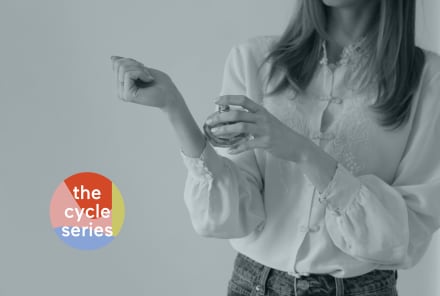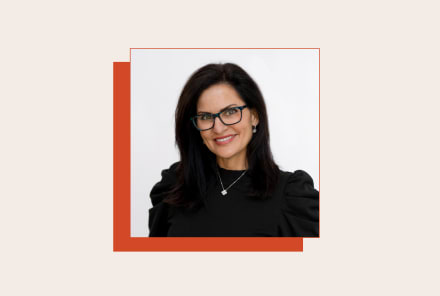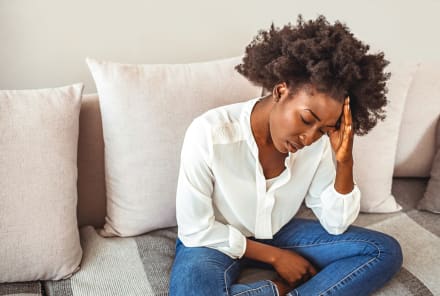Advertisement
How To Make The "Right Decision" More Often, From A Harvard Psychologist


Too often, we divide the world into mindless dichotomies. You either have control or you don't. But the real question is: control over what? And from whose perspective? This is especially true when it comes to medical decisions.
For the vast majority, if not all, of such decisions, the outcomes are probabilistic and full of uncertainty. Which treatment should you choose? The doctor will typically frame the alternatives in terms of potential outcomes.
Take the question of knee surgery, a common dilemma among my friends.
On the one hand, maybe you shouldn't get surgery because the injury might resolve on its own and surgery is always risky. On the other hand, it might get worse and require even more extensive surgery if you wait. Of course, if you delay the surgery, a better procedure might be invented. But if you do it now, you can get back to your regular exercise schedule. And so on. If you're so inclined, you can always check the empirical literature, but that's usually just as confusing.
So, how should we make decisions?
We should begin by recognizing our limitations; the human brain is not an omnipotent supercomputer. Moreover, even if it were, there's the "problem" that every cost is also a benefit from a different perspective. As a result, when making decisions in uncertainty, more information, time, and calculations are not better. In fact, taking too much information into account can backfire, leading people to overthink the problem and choke.
Sian Beilock and Thomas Carr's work shows this at work in an educational setting.1 If we are anxious about a math problem, we consider too many possibilities, which can consume our scarce working memory and keep us from solving the problem at hand. We're so worried about getting it right that we get it wrong.
Imagine deciding whether to buy a house. What states, cities, or neighborhoods to consider? How much can you really afford to pay? To answer this question, we might need to know what the economy will look like in five years, whether the stock market will grow or shrink, whether our jobs will remain secure, whether unexpected expenses will occur, whether we'll remain married and continue to need a house, whether we'll continue to want the costs of homeownership, and so on. The list is almost endless, and each of the pieces of information above has its own inherent uncertainties and risks.
This doesn't mean we should buy a house at random or not buy a house at all. Instead, I would argue for a very different approach.
How to make your decision the right decision
Rather than recommending endless analysis, my experience and research suggest taking a limited amount of information available at the time and going ahead and choosing an option. Then, rather than worry about whether the decision was right, we should try to make it work.
Look at any advantages that accrue from whatever happens, and then play it as the "right decision." That is, don't try to make the right decision; make the decision right.
In this case, once you have chosen a house to buy, you can "make the decision right" by starting to build investments in your neighborhood—registering your kids in local schools, knocking on doors to meet your neighbors, and joining the local gym—and by making your new home warm and inviting by finding a table and chairs to fit in your new kitchen, helping your daughter set up the Wi-Fi for her computer in her bedroom, and finding the local Little League for your son.
We’re so worried about getting it right that we get it wrong.
The same applies to medical plans. That is, don't try to make the right decision, make the decision right by enrolling in a local gym or signing up for physical therapy after knee surgery.
We can never be sure our knee wouldn't heal on its own or with just a consistent practice of yoga or whether some new magical drug would soon be coming to market. We can never be sure the surgery will be successful. On the other hand, the surgery could be successful and we finally could be pain-free post-surgery.
Regardless of whether you do have the surgery, the next step is basically the same: Do all that you can to regain the pain-free life you're seeking. Satisficing suggests there is a correct answer but it's too hard to figure out. My view is that there is no correct decision independent of the decider making it right.
Adapted from an excerpt of THE MINDFUL BODY: Thinking Our Way to Chronic Health by Ellen Langer, Ph.D., with permission from the publisher.
Watch Next
Enjoy some of our favorite clips from classes
Enjoy some of our favorite clips from classes
What Is Meditation?
Mindfulness/Spirituality | Light Watkins
Box Breathing
Mindfulness/Spirituality | Gwen Dittmar
What Breathwork Can Address
Mindfulness/Spirituality | Gwen Dittmar
The 8 Limbs of Yoga - What is Asana?
Yoga | Caley Alyssa
Two Standing Postures to Open Up Tight Hips
Yoga | Caley Alyssa
How Plants Can Optimize Athletic Performance
Nutrition | Rich Roll
What to Eat Before a Workout
Nutrition | Rich Roll
How Ayurveda Helps Us Navigate Modern Life
Nutrition | Sahara Rose
Messages About Love & Relationships
Love & Relationships | Esther Perel
Love Languages
Love & Relationships | Esther Perel

















